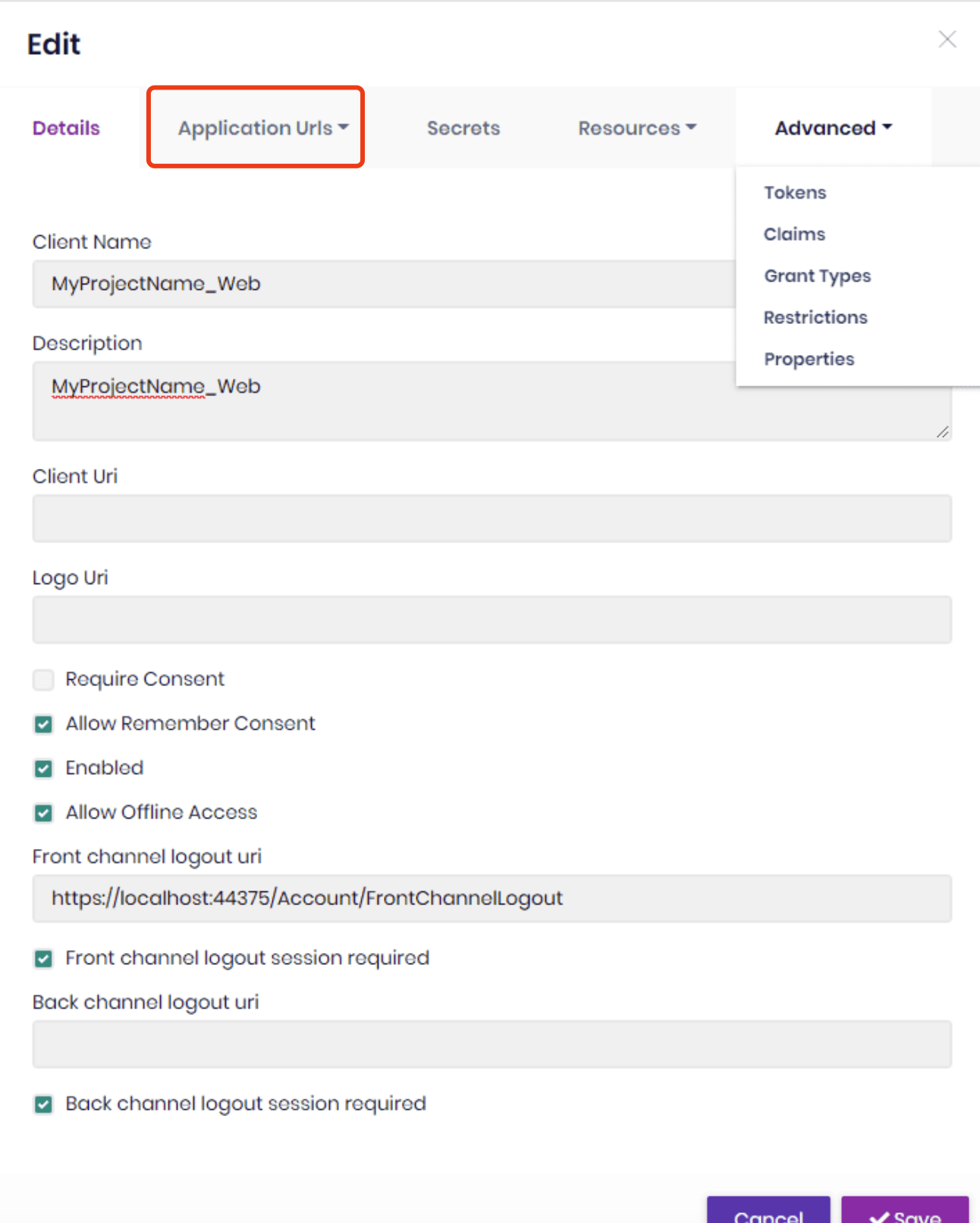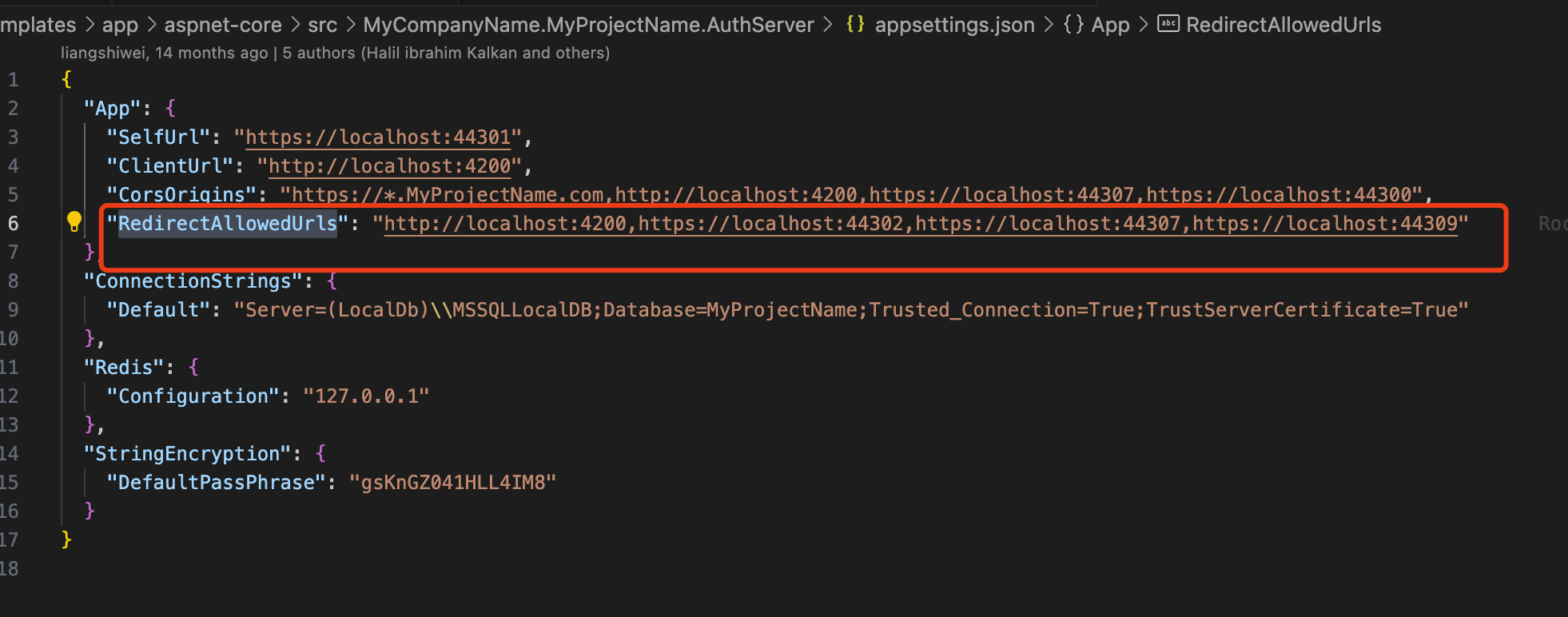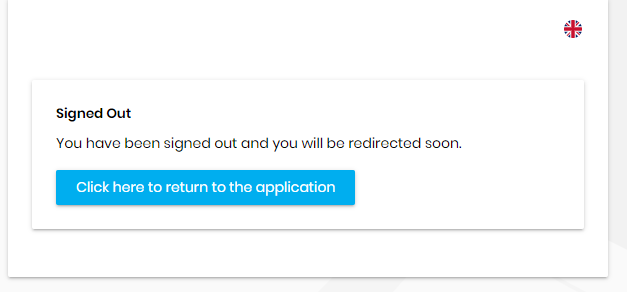- ABP Framework version: v5.3.3
- UI Type: Angular
- Database System: EF Core (SQL Server, Oracle, MySQL, PostgreSQL, etc..)
- Tiered (for MVC) or Auth Server Separated (for Angular): no
- Exception message and full stack trace:
- Steps to reproduce the issue:
I have an ABP project (account.abc.com), and another project (xyz.abc.com, not an ABP project) uses this project as an external login.
When we log out on xyz.abc.com, it sends post_logout_redirect_uri as a parameter, but the logout redirect is not working. I noticed that in my ABP projects, this parameter is sent as PostLogoutRedirectUri. I saw on the IDS page that it is used as post_logout_redirect_uri. We are unable to convince the team developing xyz.abc.com to make the change from post_logout_redirect_uri to PostLogoutRedirectUri.
In summary, even if post_logout_redirect_uri is sent as a parameter, how can we ensure that the logout process works?
6 Answer(s)
-
0
-
0
And could you share the logs of
account.abc.com? -
0
Hi Liangshiwei,
The logout redirect URLs are already defined; however, if the logout URL is as follows, it does not perform any redirection
https://account.abc.com/Account/LoggedOut?ClientName=Abc_App&post_logout_redirect_uri=https%3A%2F%2Fxyz.com&Culture=en&UICulture=en&PageContext=Microsoft.AspNetCore.Mvc.RazorPages.PageContext

If the link is in the following format, it successfully redirects:
https://account.abc.com/Account/LoggedOut?ClientName=Abc_App&PostLogoutRedirectUri=https%3A%2F%2Fxyz.com&Culture=en&UICulture=en&PageContext=Microsoft.AspNetCore.Mvc.RazorPages.PageContext
Note: This issue is not reflected in the logs
-
0
Hi,
Ok, I understand.
post_logout_redirect_uriis a standard IdentityServer endpoint/connect/endsession's parameterBut
/Account/LoggedOutis an ABP razor page, that's whypost_logout_redirect_uriwill not work.You can rename the parameter via middleware, for example:
public class AccountLogoutQueryStringMiddleware { private readonly RequestDelegate _next; public AccountLogoutQueryStringMiddleware(RequestDelegate next) { _next = next; } public async Task InvokeAsync(HttpContext context) { if (context.Request.Path.ToString().Contains("Account/LoggedOut")) { if (context.Request.Query.ContainsKey("post_logout_redirect_uri")) { context.Request.QueryString = context.Request.QueryString.Add("PostLogoutRedirectUri", context.Request.Query["post_logout_redirect_uri"].ToString()); } } await _next(context); } }public override void OnApplicationInitialization(ApplicationInitializationContext context) { var env = context.GetEnvironment(); var app = context.GetApplicationBuilder(); app.UseMiddleware<AccountLogoutQueryStringMiddleware>(); ....... } -
0
Hi, I just realized that xyz.com comes to us with the following link:
https://account.abc.com/connect/endsession?post_logout_redirect_uri=https://xyz.com&client_id=Xyz_App
I customized the code as follows:
public async Task InvokeAsync(HttpContext context) { if (context.Request.Path.StartsWithSegments("/connect/endsession")) { var postLogoutRedirectUri = context.Request.Query["post_logout_redirect_uri"].ToString(); var clientId = context.Request.Query["client_id"].ToString(); var redirectUrl = $"/Account/LoggedOut?PostLogoutRedirectUri={postLogoutRedirectUri}&ClientName={clientId}"; context.Response.Redirect(redirectUrl); return; } await _next(context); }Thank you for your response.I have resolved my issue. However, I need to mention the following as well:
- The Abp framework should handle a standard link like the one mentioned above (connect/endsession).
- It redirects regardless of what we send to the redirect URL; it does not perform any checks (It might be a bug)
EDIT (2024-08-01):
The client application was not sending the id_token_hint during the invocation of
/connect/endsession. Therefore, we removed the custom middleware. The system is now functioning in compliance with the standard -
1
Hi,
Good to see that the problem has been fixed.
The Abp framework should handle a standard link like the one mentioned above (connect/endsession).
I will check it.
It redirects regardless of what we send to the redirect URL; it does not perform any checks (It might be a bug)
The problem has been fixed in the next version.


